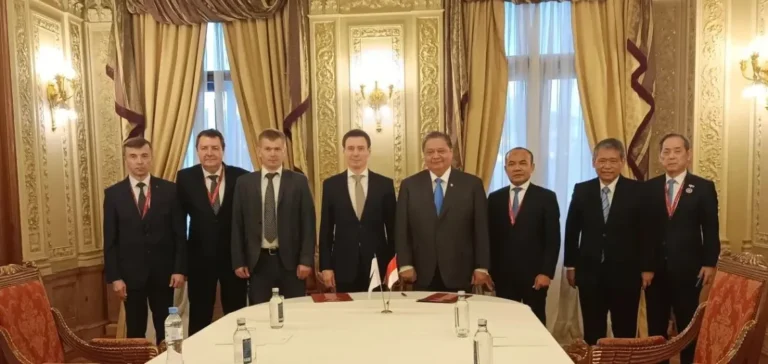Indonesian authorities are preparing to conclude a free trade agreement with the Eurasian Economic Union (EAEU), a bloc bringing together several countries from Eastern Europe and Central Asia, in December. This initiative is part of a strategy to develop trade relations between Jakarta and EAEU members, with a stated objective of significantly increasing trade flows over the next few years.
Tariff reduction on $3 bn in trade
The agreement, which is in the final stages of negotiation, includes a reduction in tariffs covering $3 bn in trade, according to EAEU estimates. Discussions have brought together government officials from both parties, notably during a meeting between Indonesian Foreign Minister Sugiono and his Belarusian counterpart Maxim Ryzhenkov. Indonesia’s Ministry of Trade reported a $7 mn trade surplus with the EAEU for the first half of 2025, highlighting the growth potential of commercial relations between the two blocs.
Expansion prospects for companies
Total trade between Indonesia and the EAEU could double within three to five years after the agreement enters into force, according to projections raised during negotiations. The agreement is expected to facilitate market access for companies in both regions, creating new opportunities in the industrial, energy and agri-food sectors. The specific terms include a gradual lowering of tariff barriers on a wide range of products, which could impact the structure of regional trade.
A new lever for economic cooperation
Official statements confirm that the signing of the agreement is scheduled to take place in Russia, marking a key stage in Indonesia’s trade policy in Eurasia. The free trade agreement will be added to the EAEU’s existing partnerships, thus strengthening economic integration with Asian countries. “This agreement will open new avenues for economic cooperation,” Sugiono said, highlighting Jakarta’s ambition to diversify its strategic partnerships. The intention to double trade volumes was confirmed by negotiators, who pointed to the growth potential for companies in both blocs.






















